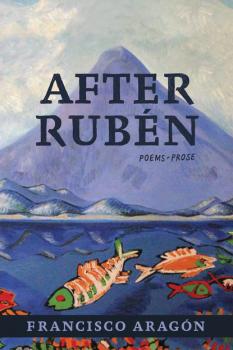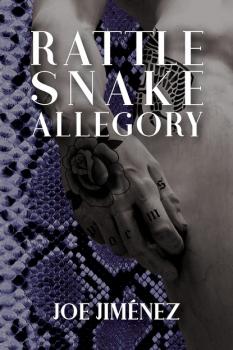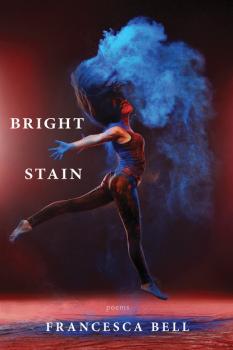ТОП просматриваемых книг сайта:
Зарубежные стихи
Различные книги в жанре Зарубежные стихи, доступные для чтения и скачиванияАннотация
After Rubén unfolds as a decades-long journey in poems and prose, braiding the personal, the political & the historical, interspersing along the way English-language versions & riffs of a Spanish-language master: Rubén Darío. Whether it’s biting portraits of public figures, or nuanced sketches of his father, Francisco Aragón has assembled his most expansive collection to date, evoking his native San Francisco, but also imagining ancestral spaces in Nicaragua. Readers will encounter pieces that splice lines from literary forebearers, a moving elegy to a sibling, a surprising epistle from the grave. In short: a book that is both trajectory & mosaic , complicating the conversation surrounding poetry in the Americas—above all as it relates to Latinx and queer poetics.
Аннотация
The poet’s first full-length collection, Quiet Money's New Edition consists almost exclusively of longer narrative poems, including the title poem about a bootlegger/pilot who flew the Atlantic solo before Charles Lindbergh. This piece is often cited as one of the most important poems of the 1980s and the movement to revive storytelling in verse.
Аннотация
Letters Written and Not Sent is the lifetime work of poet William Louis-Dreyfus, written over decades, culminating a passion for poetry, art and social justice. He passed away just days after the book was completed. Like paperweights, his lyrics are both small and hefty. His subjects range from race relations to trees, from secrets to parenthood, from ideas of god to kissing, from sons and mothers to fate, and of course, to poetry itself. Never afraid of the big questions of why human beings are alive, and what hope and justice are for, Louis-Dreyfus could take decades to finish a poem. A perfectionist, a thinker, and always inspired by visual art, he fought with himself over how to say what he wanted to say best. Like the French-Uruguayan businessman poet Jules Supervielle, whom Louis-Dreyfus translated, he felt the tug of the financial world against the pull of the lyricism of poetry, and the division marked his life and sparked ideas for his finest poems. As the heart condition that seized him made it absolutely imperative, finishing Letters Written and Not Sent literally became a life-or-death matter. This is the book that he wished to send into the world.
Аннотация
A book-length poem that brilliantly reinvents narrative poetry, The Diviners is a single poem divided into five chapters, each a different decade. McDowell relates the most crucial developments in each decade spanning from the 1950s through 1990s, of the shared lives of Al, Eleanor, and their son, Tom. The Diviners records in blank verse the family’s beginnings, their growth, their problems, their separation, and their ultimate reunion. The events that follow the intertwined lives of the characters illustrate the endless capacity for human empathy.
Аннотация
Peripheral Vision , Susan Kinsolving’s fourth book of poems, explores the world from many points of view. She takes her readers to England, Hollywood, Wyoming, France, and Chile. She goes behind the scenes in a military hospital, an elementary school, and a disturbed family. Her poems were described in the New Yorker as “grand and almost terrifying.” In this new collection, she proves herself again. As a guest poet and lecturer, Kinsolving has performed at numerous venues, including Harvard, Columbia, and Yale University, as well as Bad Robot in Santa Monica and Bread Loaf in Vermont.
Аннотация
This full collection of fifty-six poems reflecting on the concept of self, loss, fragility, and the constructs we must create in order to face the transient nature of life was named a finalist in the National Poetry Series, The New Issues Poetry Prize, The Four Way Books Intro Prize, and others. It was also listed as a “remarkable work” in the Tupelo Press 2012 open submission period
Аннотация
These poems are about “the moment inside the body / when joy is not born as much as it is made out of anything / the rest of the world doesn’t want.” Using land and South Texas’s flora and fauna as references, these poems explore aloneness and manhood as articulations of want, asking the reader to “take a moan by the hand, see what good it does.” Thematically, these poems address loss after transformative experiences, admitting to a reader, “All night I might fathom taking back / something precious / that somehow, / long ago, or not so long ago, I don’t know, / ripped off, / yanked from bone, / sloughed off like a husk.” These poems are about getting to know one’s body after being distanced from it, of recognizing a queer brown body inextricably belonging to lineages of loss, and then realizing that some new body has emerged from where the old parts were lost, or taken, as in the final sequence of four poems, “Lechuza Sketches,” where the speaker manifests the Tex-Mexican folkloric figure of a lechuza, the human-owl hybrid said to inhabit parts of South Texas and the Northern Mexican border. In the end, this is a collection of poems about more deeply engaging with one’s queerness, one’s brownness, and understanding that there are parts inside us we never knew existed, or as the Lechuza Sketches speaker offers, “In the world, some part of us is often / unseen / & not glorious. / But what if we are? / Glorious. Seen.”
Аннотация
Since her early poems, Katharine Coles has been known as a poet who isn’t afraid to tackle big subjects that occupy the intersections of art and science, including how we know what is true (if we do). Driven by her insatiable curiosity and relying on a use of form and elision so deft it amounts to sleight-of-hand, Coles brings these big questions into small spaces in her seventh book, Wayward , moving the reader at mind-speed through brief meditations on love, marriage, and family; the permeable boundaries of the self; death; and perception. Though her subjects are deeply serious, Coles’ primary tools for addressing them include her wry wit and agile intelligence, which, taking nothing for granted, she deploys to examine our basic assumptions about the world and our experience within it. As always, Coles here uses technical skill to move her thinking in new directions—many of them at once.
Аннотация
Wild Honey, Tough Salt offers a prismatic view of Earth citizenship, where we must now be ambidextrous. The book takes a stern look inward calling for sturdy character and supple spirit, and a bold look outward seeking ways to engage grief trouble. The book begins with poems that witness a buoyant life in a difficult world: wandering New Orleans in a trance, savoring the life of artist Tove Jansson, reading the fine print on the Mexican peso and the Scottish five-pound note. Clues to untapped energy lie everywhere by the lens of poetry. The book then moves to considerations of the worst in us—torture and war: how to recruit a child soldier? How to be married to the heartless guard? What to say to your child who is enamored by bullets? In the third section, the book offers a spangle of poems blessing earth: wren song, bud growth, river’s eager way with obstacles. And the final section offers poems of affection: infant clarities of home, long marriage in dog years, a consoling campfire in the yard when all seems lost. The book will soften your trouble, and give you spirit for the days ahead.
Аннотация
Unapologetically sensual and forthright, Bell explores desire, loss, faith, doubt, tenderness, and violence; and sex as experience, metaphor, and magnifying lens for relationships. Bright Stain may or may not become the Sex and the City of poetry, but this knock-your-socks-off debut will likely inspire debate—perhaps controversy―as it inhabits some startling points of view, including those of pedophile priests, serial killers, and prison inmates. Those who miss reading these breathtaking, visceral poems won’t know what their friends are raving about.










